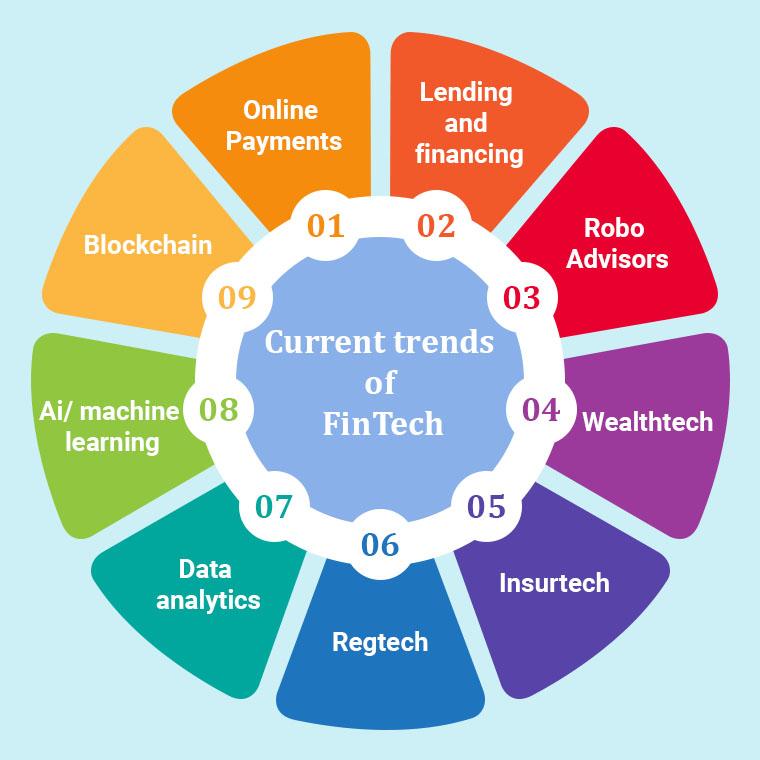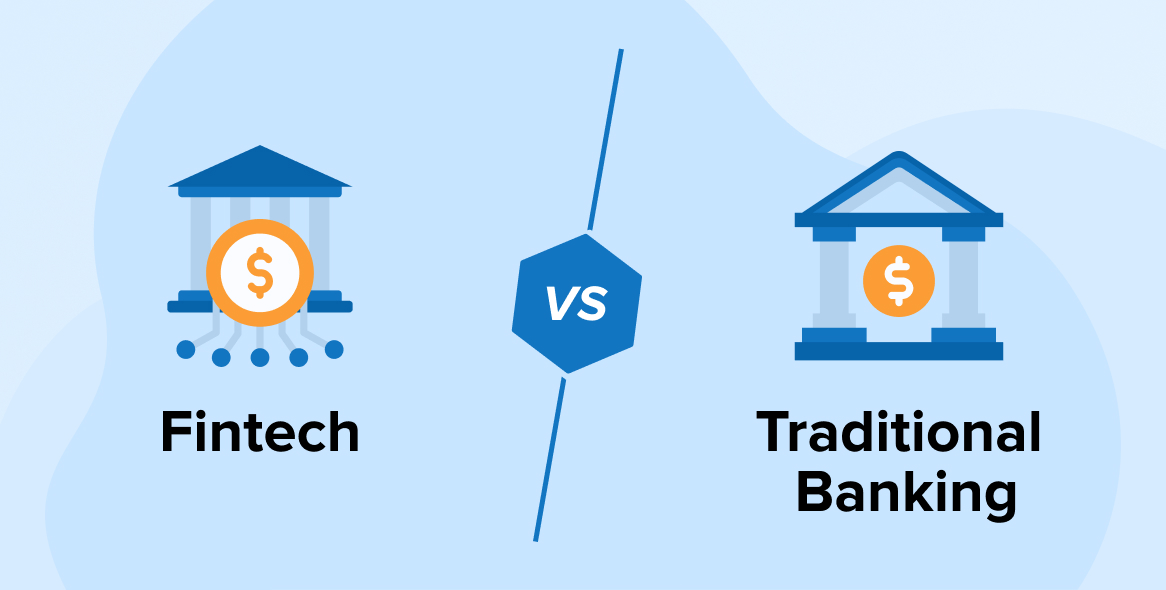
The Financial industry appears to have withstood the hurricane that is still ripping the world. And how they do that is by using technology at its best. It wouldn’t be incorrect to say that the advent of technology has been constantly shaping up the business of the finance sector.
Fintech has revolutionized the financial world. We see multiple innovations today in financial software development, such as internet payments, contactless transactions, and mobile banking, which are mostly focused on making things more efficient for customers and businesses. Any form of technology meant to enhance and automate the usage of financial services is referred to as Fintech. If we were to compare other industries then the in-demand talents of software development may appear to be more interesting. Other industries can also get interested in adopting Fintech software within their business. This blog post is an eye-opener with all the facts and insights on Fintech that an organization must know if they want to develop a fintech app for their own business.
1. What is Fintech?
We all know the abbreviation of Fintech and all of Fintech’s wide spectrum offerings. We can also say that conventional finance has been transformed into a model that includes Fintech services in it. If we see the advancements of Fintech then there are multiple businesses’ ways of gaining profit by innovating your traditional financial system. Fintech is being used in a variety of industries, including financial service advising, investment management, mobile technologies, and payments. To personalize goods for different consumer categories, several Fintech businesses use mobile technology, big data, and advanced analytics.
2. Current Trends of Fintech

Technology is ever-expanding, and it is bringing radical changes in the way we progress and is redefining the way finance works. At the onset, there are a few technologies that are trendsetters and rapidly Growing Segments. The most visible trends of the Fintech industry compose many sub-industries, including
- Online Payments;
- Lending and financing;
- Robo Advisors
- Wealthtech
- Insurtech
- Regtech
- Data Analytics
- Ai/ machine learning
- Blockchain
3. Categories of Fintech
There are infinite divisions of Fintech if we were to cut it down appropriately. So many technologies are regularly intervening and making this process of financial app development greater success. There is no stoppage on what constitutes Fintech. Some claim it encompasses all financial and technological interactions, while others see it as only a collection of financial sector disruptors. However, the reputable Venture Scanner lists 10 major Fintech areas.:
- Banking Infrastructure
- Business Lending & Consumer Lending
- Consumer and Commercial Banking
- Crowdfunding
- Equity Financing
- Financial Transaction Security
- International Money Transfer
- Payments Backend and Infrastructure
- Point of Sale Payments
- Retail Investing
A survey by Market Screener reveals that the Fintech market will be worth $26.5 trillion by 2022, growing at a CAGR of 6%. This surely includes all the technology innovations already making a difference. All the Fintech firms from startups to established companies are able to harness the benefits of lower operating costs but are mostly addressing all individual business needs efficiently. Thus, now they have greater access to a wider range of information. There are bigger forums contributing to the development of Financial technology like the World Economic Forum which has made massive contributions and has impacted traditional financial services heavily.
4. World Economic Forum Contributions
If we were to ask how Fintech started, then the answer is it all started with Giovanni Caselli’s invention pantelegraph. This is one of the most significant parts of the financial invention which is considered an inflection point in the world of globalization.
Fintech, on the other hand, began to grow in 2008, following the global financial crisis. Though there was fearfulness of bank fraud, the general population sought to disassociate themselves from centralized financial organizations. All this is because of the rising frauds in the finance sector. That’s where IT solutions came in handy: following the collapse, a slew of financial sector firms sprung up, offering people services. The implementation of fintech can offer automation, security, innovation, storage facility, and whatnot. There was Fintech as a financial technology for banking sectors and sub-sectors were introduced. The World Economic Forum came into the light and suggested a few ways of making the best user of Fintech.
- You must deliberately define the ethical use of data, using parameters for players in the financial system to utilize consumer data for business reasons.
- Establish a public-private conversation on transformation to identify areas where supervisor help is required to create technologies to improve stability.
- Maintain industry standards to enforce a code of ethics in light of new technologically enabled advances.
- Keep an eye on and learn about Fintech innovation.
5. Comparing Fintech with Traditional Banks
Traditional banks are more focused on solving general user problems and generating sales that involve several goods, whereas Fintech often sells clients a particular service or product utilizing innovative technology. Nonetheless, in recent years, the gap between them has shrunk significantly. While we see traditional banks have also hopped on the digital bandwagon with their new-edge offerings and technology innovations.
Undoubtedly, Fintech as a service has given more opportunities than traditional financial institutions. The financial services offered are also with high-potential technologies. While traditional banking is continuously indulged in catering to their existing clients and keeping them satisfied with all the services they have.
6. Reasons for Rapid Growth
There are numerous reasons behind the success of Fintech services. It wouldn’t be wrong to say that the growth of smartphone usage is one of the most important elements in accelerating technical developments in the financial services area. Many Fintech companies have widespread acceptance. In addition, there are a number of additional elements that are critical to the transition. The way banks and financial institutions engage with consumers and do business has changed as a result of digitalization. Customers may now manage their bank accounts and investments using only their mobile phones, eliminating the need to visit banks in person.
7. Demographic and Economic Trends
The overall initialization of new technologies has tended to blossom in every possible geography. There is no exception to who can use the technology and who cannot. However, it can differ among demographic groups like millennials or mid-age, or senior citizens. Fintech keeps all these age groups on top of business with their specialized Fintech products and services.
For example, having grown up with smartphones and mobile applications, Millennials are the most technologically savvy generation. They also like processes to have rapid, transparent access to information, and since they are still young, they haven’t yet developed strong connections.
The amateurs in the Fintech market also know the potential of the market and their services. They’ll need help managing their money when they retire and making sure it lasts as long as they need it. There is a huge market potential for Fintech making space in various unexpected areas it could.
8. Advantages of Fintech
Fintech has leveled up the business arena with all the technology advancements it could offer. It has raised the bar by allowing all users to access all digital services. The services were previously only available to the selected users like the rich or those of a specific economic status. Technology and data have made it simpler and less expensive to provide financial advice to the public, which means that something that was previously only available to a particular asset level is now available to everyone. Certain benefits of Fintech empower you with benefits such as;
- It offers a better and streamlined financial system
- Industries can speed up with a transparent system
- You can have a secure and better way of accessing
- Improved customer service
- Speed and less expensive payment processes
- A financial advisor could be in your pocket for an investment advice
- Infrastructural support
9. Conclusion
The finance sector is constantly booming and the reason behind it is technology. Companies using Fintech have seen immense growth in terms of consumers, and their satisfaction. Technologies like blockchain, automated bots, machine learning, and others have easily helped businesses to transform their business digitally. Fintech and traditional banking are different and serve the purpose of customers differently. This article has covered all that you must know to become one of the leading fintech companies in the league.






Thanks for sharing this informative article. I appreciate that the attempt to cover all the fundamentals of fintech. Fintech is also helpful in contributing to the world economy. But I am troubled to think about, will fintech replace the banks? Because rapid growth of the fintech industry offers customers the convenience of not going to banks for any query, for money transfer, or any other query.
Hey Joshua. Good question -Will fintech replace the bank? Many banks accept new technologies to manage and improve their services. Online banking services have reduced the need to visit their bank. All queries and problems can be done online. And to keep in mind, Fintech can change banking services, not the banking model. It has the potential and may takeover legacy banking systems.